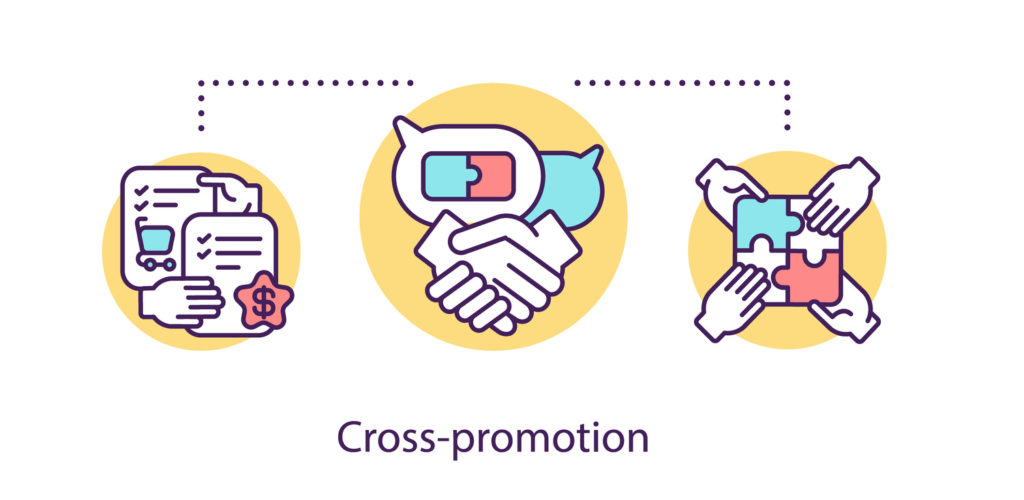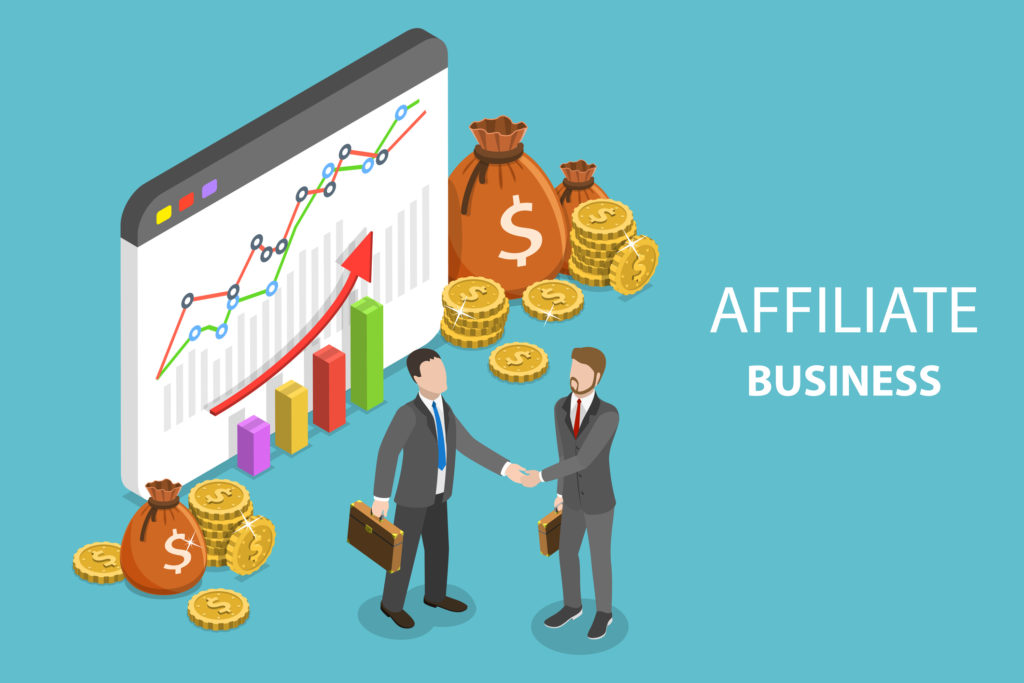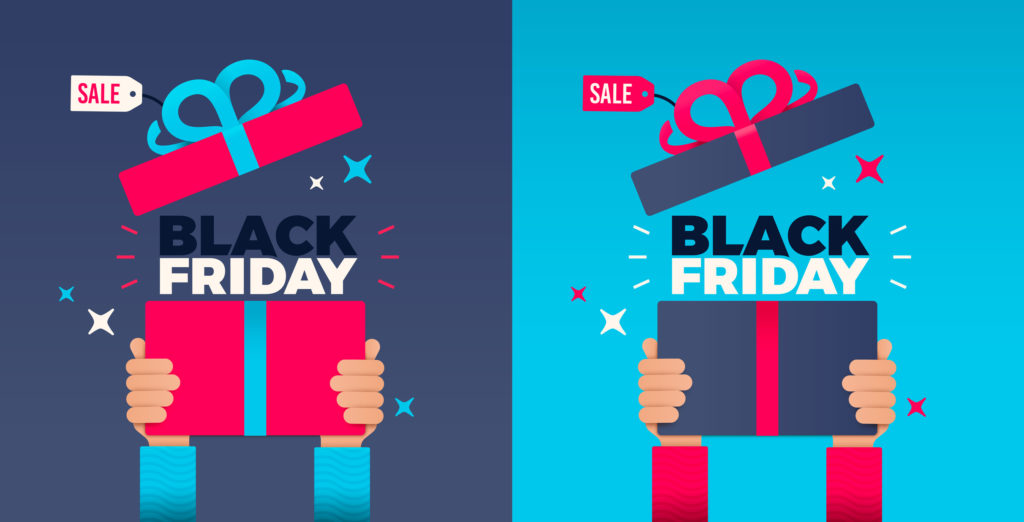
Customer acquisition on the web
Customer acquisition is a source of concern shared by all e-merchants!
Many strategies exist to develop your customer base on the web, with SEO and paid advertising being the two most popular.
But what about other acquisition strategies? What are the most effective web acquisition levers to attract new customers to your e-commerce?
Here are 11 acquisition levers that can be very powerful. However, they will need to be adapted to your business. These levers will give you ideas for growth opportunities for your e-commerce.
1. Form strategic sales partnerships
The aim here is to attract new customers by taking advantage of the customers and know-how of other companies.
It is therefore necessary to join forces with other brands/traders. Whose products are not in direct competition with yours? But complementary, to mutually boost your sales.
When looking to make acquisitions through sales partnerships, the most difficult thing is often to find the right partner.
When considering this type of partnership, you need to find a partner who offers products that compliment your own and adds value to the offer, products, and/or services you offer on your e-commerce site.
Of course, a partnership must also be beneficial for both parties. You need to join forces to achieve common benefits.
For example, you can develop strategic partnerships with other companies that could use your product as part of their offering or offer it to their customers, and vice versa.
The elements to be taken into account when looking for partners are the following:
– Their total customer base.
– The likelihood that their customers are interested in your product (and conversely that their customers are interested in yours).
– Their online reach (mailing list, the community on social networks, etc.).

2. Publish content on external sites
The aim here is to introduce your company to a new audience. And increase the volume of traffic targeted to your e-commerce. While optimizing your natural referencing thanks to backlinks.
Guest blogging, i.e. creating unique content to be published on another brand’s blog/website or by someone outside your company with a hyper-relevant audience in relation to what you are offering.
A tip: instead of writing content and publishing it on different websites. Rather, spend time developing specific content that is fully adapted to the audience. And to the editorial line of the site, you will publish on.
To find a website on which you will benefit from publishing content, ask yourself the following questions:
– Does every article on the coveted website generate commitment? (comments, sharing, etc.)
– Does the website have significant traffic? (use a tool like SimilarWeb)
– Is the website’s audience similar to the profile of my clients?
– Will this bring targeted traffic to my website?
3. Create co-branded content
Here, the objective is to increase the reach of content as well as the clients generated.
The idea here is to create content (video, advertising campaign, etc.) with another brand and then to both promote them.
The success of this customer acquisition lever will largely depend on how your product/service complements the other brand’s offer.
Once again, it is important to partner with a company that has a large audience among the consumers you are targeting, but that is not directly in competition with you.
To set up a co-branded content campaign, you will need to follow different steps:
– Make a list of companies that target a similar audience but have an offer that complements yours.
– Contact them to find out their whole scope (size of the mailing list, site traffic, etc.).
– Work together on a content idea that respects and enhances your respective brand identities.
– Create references, including a landing page on each of your respective websites.
An exemple of successful co-branded content : GoPro & Red Bull
GoPro doesn’t just sell portable cameras, and Red Bull doesn’t just sell energy drinks. Instead, both have established themselves as lifestyle brands. To make the partnership work, GoPro equips athletes and adventurers from around the world with the tools and funding to capture things like races, stunts, and action sport events on video. From the athlete’s perspective. At the same time, Red Bull uses its experience and reputation to run and sponsor these events.

4. Cross-promotion on social networks
The objective of this lever is to generate traffic to your content that has the potential to convert according to your business objectives.
You will need to agree with a company to mutually promote your content on your respective pages/profiles, be it Facebook, Twitter, Instagram, YouTube, or Pinterest.
As with the strategic partnership, find partners whose products/services are related to yours, or have affinities. Also, make sure that your respective brand images are well aligned.

5. Set up an affiliation programme
The aim here is to generate new customers through incentive referrals.
The idea here is to give a commission to an influencer or company each time they bring you a new customer.
It’s a win-win situation! While you increase your ROI through customer acquisition, your partner generates additional revenue through the commissions you pay him/her.
In order for your e-commerce acquisition via an affiliate program to work, you will need to identify potential affiliates in your brand universe. Their audience must match your target market, and their message must correlate with yours.
While there may not necessarily be a standard approach to developing an affiliate program, you should at least consider these three points before you start:
– The maximum amount you can give to affiliates to keep a profit.
– According to which objectives you will compensate your affiliates (per click, per registration, per sale, etc.).
– The system you will use to track your affiliates’ referrals.

6. Participate in forums and question&answer websites
The objective is to generate reference traffic to your website and position you as an expert in your sector of activity.
You will have to answer the questions of Internet users by talking about your company and your products/offers on sites such as Quora (or Yahoo Questions/Responses), or on specialized forums.
For those of you who have never used it before, Quora is a question-based social network. In short, Internet users ask questions that all other Internet users can freely answer. The questions and answers cover everything from the meaning of life to tips on how to unclog a sink.
From a customer acquisition point of view, Quora gives you the opportunity to drive traffic and increase brand awareness by commenting on the questions answered by your content.
However, you will need to be subtle in avoiding displaying a link to your content. Quora’s moderators could delete your answer in no time.
You can still insert links in your answers, but don’t always do so. Every answer you post should have intrinsic value without having to visit your site. For a question of credibility, also try to show goodwill within the community by answering a few questions without any links.
As for the answers in the specialized forums, you can start to spot conversations that you can join.
Watch for any mention of your product or any related terms and participate when you can add valuable information to the discussion. And, when the opportunity arises, you can talk about your products/services.
Also, you can join Twitter discussions and LinkedIn groups that relate to your industry and provide useful answers whenever possible.

7. Set up a customer recommendation programme
Here the objective will be to acquire new customers thanks to a mechanism that will encourage your existing users to recommend your products/services to their friends, family, colleagues…
How to do it? By betting on the virality of the web! Offer personalized discount vouchers or promotional codes to be shared via sponsorship.
Before setting up a referral program that could go viral, ask yourself these questions:
– What features of your product are most popular among your customers?
– Do you have features that have usage ceilings that can be increased?
– By inviting others to use your product, would your existing customers benefit from any kind of network effect?
– What can you use as incentives for existing users to attract new users that will have a minimal impact on your customer acquisition cost?
The example of Airbnb
It’s difficult to find someone who hasn’t heard of Airbnb or even used them themselves. The internet lodging titan that we know today as Airbnb started out when the founders rented out an air mattress in their living room and the rest is history. Now, Airbnb is one of the defacto examples people cite when they think about a startup unicorn.
Referrer Rewards: US$18 per qualifying stay and US$10 per qualifying experience
Referee Rewards: Up to US$46 account credit
Results: In some cases, Airbnb’s referral program increased bookings by over 25%, and their latest version came in even stronger than before, boosting referrals by more than 300%.
What they did right: Their approach was successful for two key reasons: they streamlined the sharing and shopping experience, and leaned into their users’ desire to help, using A/B testing to prove that positioning the reward as a gift to a friend produced better results than a message emphasizing receiving a reward for yourself.

8. Do influence marketing
The objective is to increase the visibility of your company, promote your brand image, and optimize your natural referencing (SEO).
You will then need to contact influential people in your industry to ask them to test your products/services on their blog or social profiles.
Apart from the obvious benefits of acquiring new customers, and influence campaign can have a lot of positive effects if it is well conducted.
Note that it will be more interesting to choose leaders in your industry, or influencers whose profile really fits your brand, rather than having a bunch of less targeted bloggers recommending your product.
You can then create a special landing page on your e-commerce site where each influencer will drive traffic, or create a specific offer linked to each influencer.
You can follow these few steps for your influence campaigns:
– Make a table list with the names and contact details of a number of influencers within your industry.
– Contact them individually, describing what you are looking to do, insisting on exclusivity, and what they will get in return.
– Working with each influencer to put together a personalized offer.
– Create content for each influencer: dedicated landing page, editing, visuals, promotional code…

9. Launch a promotional offer
The aim is to attract new customers by “pushing” them to buy.
This will involve spreading your promotional offer via announcements on social networks, or by sending an email containing a discount code to your mailing list.
Depending on the calendar, holidays, seasons, trends, or events of the moment, you can propose a discount code that can be used on your e-commerce or offer the delivery costs.
If you have a less popular item in stock, you can also consider offering it on orders above a certain amount.
Whatever your preference, a promotional offer is always a great web acquisition strategy because it makes customers feel they’ve got a good deal.

10. Increase e-mail engagement
The goal is to increase the number of people who read and interact with the emails you send to your subscriber list by specifically targeting those who have failed to open them.
Wondering how? About 48 hours after sending an email to your subscribers, go into your email marketing software and identify all your subscribers who have received your email but have not opened it.
Resend your e-mail with a new subject line only to these people.
This acquisition tactic gives you the opportunity to increase the opening rate of your campaign, without appearing to spam the inboxes of subscribers who have already read it.

11. Re-publish old content
The objective of this lever is to generate more search traffic to the existing content of your e-commerce site.
This will involve updating and republishing old content.
If you regularly publish content on your blog, some of your posts are probably deeply embedded in the architecture of your website – the older a blog post is, the “lower” it will be in the various archived blog pages.
A simple solution is to update the publication date of the article and republish it. This will bring it to the top of page 1 of your blog feed and give it a significant SEO boost.
You can also take the opportunity to update its content (old statistics and references for example) and re-promote it (via social networks, emails, etc.).

Finally
You now have in your hands, 11 powerful levers for consumer acquisition. Used well, they will be formidable allies. Do not hesitate to contact us if you have any questions or left a comment. We will be happy to hear from you.
The acquisition is a vast and very interesting subject. Don’t miss anything and keep up on the latest news on this blog.